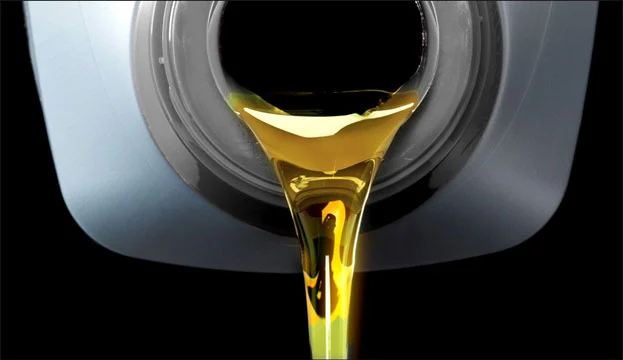When the engine is started, the oil must quickly go from its cold resting place in the bottom of the oil pan all the way up to the valve gear at the very top of the engine and then flow back down to the bottom of the pan. This process must take place nearly rapidly. Everything inside of your engine, including the bearings, pistons, cylinder walls, and every other component that moves or comes into contact with something that does, is shielded by the oil.
The engine must continue to be protected by the oil even after the initial cold startup, regardless of how hot it gets or how hard it is run. It must be able to do this for a period of weeks, if not years, during a great number of short journeys, extended voyages, and (for some) the occasional racetrack or winding two-lane flogs.
You rely on the oil in your vehicle to perform its function without fail through the freezing winters of the north and the stifling summers of the south while warding off rust, other impurities, and deposits that can clog passageways.
You put a lot of effort into your vehicle, but how often should you replace the oil? That is debatable, but before we get into that, let’s discuss the rationale behind the recommended intervals for changing synthetic oil and what synthetic oil is.
What is Synthetic Oil?
The term “synthetic oil” refers to a chemical compound that is the product of human ingenuity and was developed for the purpose of lubricating internal combustion engines of the type often seen in automobiles, aircraft, and metal stamping machines.
It is intended to serve as an alternative to standard engine oils that are derived from crude oil. It has numerous benefits, one of which is that it lessens the impact on the natural world that is brought on by the regular extraction and refining operations that conventional oil necessitates.
Intervals Between Oil Changes

- When it comes to determining how frequently you should replace the oil in your automobile, go to the owner’s manual.
- The frequency of oil changes is directly proportional to the type of motor oil that is used.
- In the days of conventional motor oil, it was common practice to change the oil and filter on one’s vehicle every 3,000 miles.
- Both synthetic blends and synthetically produced variations can extend the distance between oil changes from 5,000 miles to as much as 10,000 miles.
- Oil and lubricant technology has had to adapt to meet the ever-increasing demands posed by high-compression engines, auto start-and-stop technology, turbocharging, and other developments.
What Are the Differences Between Conventional Oil and Synthetic Oil?
When compared to conventional oil, synthetic oil is more expensive; however, it is also of higher quality and has a greater potential to last for a longer period of time. As a result of these characteristics, this particular kind of oil contributes to improved performance, which is why it is customarily the oil of choice for high-performance automobiles.
Suppose you need clarification as to whether your vehicle requires synthetic or traditional oil. In that case, a quick peek through the owner’s manual for your vehicle will tell you the type of oil that your vehicle manufacturer recommends.
Why Should You Go for Synthetic Oil?

In the event that the engine of your vehicle demands synthetic oil, you can be dissuaded from purchasing it due to the fact that it is more expensive than conventional oil. Despite this, synthetic oil offers a number of benefits that aren’t present in normal oil. The use of synthetic oil has a number of advantages, including the following:
Extended intervals between oil changes due to the refined properties of synthetic oil, certain vehicles that need synthetic oil can go up to 15,000 miles before needing an oil change.
Superior performance at higher temperatures because it does not thicken to the same extent when subjected to high temperatures, synthetic oil has a longer shelf life than regular oil. It is better for performance because of the refined nature of synthetic oil. It runs cleaner for longer, making it perfect for use in performance vehicles, whether they are used for racing or for transporting big cargoes around Radcliff.
Is Synthetic Oil Better?

Engine oils of today are marvelously engineered mixtures of refined petroleum and advanced additives. This enables them to maintain their protective properties throughout the many months, miles, and harsh circumstances that they are subjected to throughout their lifetime.
While some are best suited for moderate use over shorter periods of time, others are more effective when used more vigorously and over longer periods of time. Synthetic oils are often created and produced from petroleum components (and some other materials) that have been subjected to chemical modification. As a result, synthetic oils offer the best performance and the longest service life.
Synthetics can provide improved startup performance and flow at temperatures as low as -40 degrees Fahrenheit. They can then withstand extremely high temperatures without oxidizing, thickening, or becoming black even after being exposed to these conditions.
Synthetics may be made to considerably lower viscosities while still maintaining their protecting and lubricating capabilities, which is an advantage for automakers who are increasingly turning to thinner and ultra-low viscosity (thickness) oils to minimize running friction and improve fuel efficiency.
They are usually two to three times more costly than conventional oils, but they are cleaner and more resilient, have superior chemical and mechanical qualities, particularly in extreme temperature ranges, and may retain those properties for longer periods of time between changes.
How Often Should You Change Synthetic Oil?

Your vehicle’s make, model, and the year it was manufactured all play a role in determining how often you need to change the oil. Altering your vehicle’s oil should be done at least once every three months or every 3,000 miles, whichever comes first. On the other hand, the oil in today’s vehicles has to be changed much less frequently than it did in older vehicles because engines are now much more fuel efficient, and oil chemistry has been improved to make it last longer.
Changing the oil in some automobiles, pickup trucks, and sport utility vehicles (SUVs) is now only required every 7,500 to 10,000 miles. Additionally, synthetic oil can extend the duration between oil changes by much more than conventional oil can. If your vehicle is not too old and you drive it approximately 12,000 miles per year, you can get away with merely changing the oil once every 12 months.
Here are a quick review of the most common automobile manufacturers and the current oil change schedules for their product lines to make things a little simpler for you.
| Car Make | Synthetic Oil Change Range |
|---|---|
| Acura | 7,500-10,000 miles |
| Audi | 7,500-15,000 miles |
| BMW | 12,000-15,000 miles |
| Buick | 7,500 miles |
| Cadillac | 7,500 miles |
| Chevrolet | 7,500 miles |
| Chrysler | 8,000 miles |
| Dodge | 7,500 miles |
| Ford | 7,500-8,000 miles |
| GMC | 7,500 miles |
| Honda | 7,500-10,000 miles |
| Hyundai | 7,500-10,000 miles |
| Jaguar | 15,000 miles |
| Jeep | 5,000-7,500 miles |
| Kia | 7,500 miles |
| Land Rover | 7,500-10,000 miles |
| Lexus | 10,000 miles |
| Mazda | 15,000 miles |
| Mercedes Benz | 10,000 miles |
| Nissan | 5,000-7,000 miles |
| Porsche | 20,000 miles |
| RAM | 8,000 miles |
| Subaru | 5,000-7,000 miles |
| Tesla | You don’t need to! It’s electric |
| Toyota | 10,000 miles |
| Volkswagen | 10,000 miles |
| Volvo | 10,000 miles |
Is there a difference while using synthetic oil?

Today’s engine oils are brilliantly designed blends of petroleum products and sophisticated additives, enabling them to maintain their protective capabilities through all those months and miles and unfriendly environments. These blends have evolved over the course of the past century. While some are best suited for moderate use over shorter periods, others are more effective when used more vigorously and over longer periods.
Synthetic oils are often created and produced from petroleum components that have been subjected to chemical modification. As a result, synthetic motor oils offer the best performance and the longest service life (and some other materials).
FAQs
How many miles can I go between oil changes with synthetic oil?
Most synthetic oils last between 7,500 and 15,000 miles, depending on the type of car you have. You will, however, need to consult the owner’s manual for your vehicle in order to obtain more exact numerical information.
How do I know when my synthetic oil needs replacing?
The vehicle itself will provide the clearest indication of a problem with the oil you are using. When there is not enough oil in the system, the “oil change” light that is built into your car will turn on; therefore, you need to check the dipstick to determine what is going on.
In more serious circumstances, the “check engine” light will come on. This is your vehicle’s way of alerting you that things have deteriorated to the point where the engine is in danger of being damaged as a result of faulty parts or inadequate lubrication.
Do I need to change synthetic oil every 6 months?
Although synthetic oil tends to be more durable and can be used for a greater number of miles, it is still imperative that you do not extend the time interval between oil changes beyond what is recommended by the manufacturer. This time interval is typically between six months and a year if the motor is not driven very far or goes on a lot of short trips.
Can you mix synthetic oil with conventional oil?
Mixing oils of various refining classes, such as synthetic and conventional, is one of the few practices that is generally discouraged. This is especially true for synthetic and conventional oils. Mixing them together will work if you are in a bind and need oil for your vehicle, but doing so is not suggested in normal circumstances.
Conclusion
When you should change synthetic oil depends mostly on the type of vehicle you are using. However, for most of the cars, it’s usually after 7,500 and 15,000 miles. We have listed the range for almost all cars, so you can easily know when is the best time to change synthetic oil.




